Inside Cream City Hostel
A tour of the 52-bed Riverwest hostel that will open just in time for Summerfest.
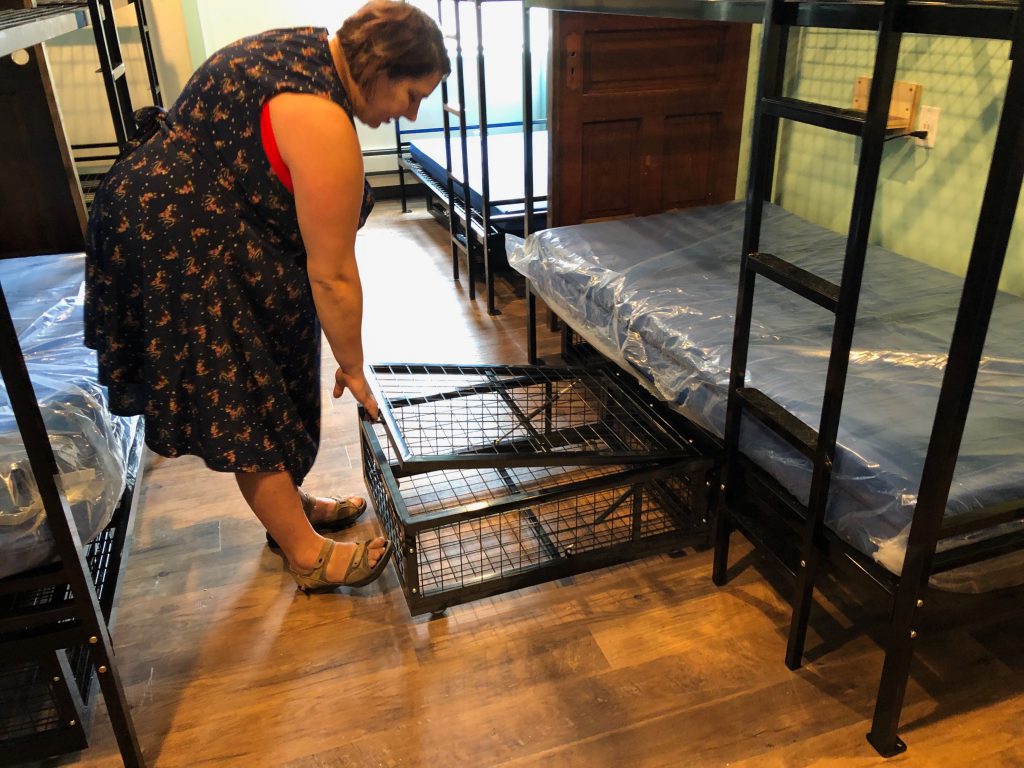
Wendy Mesich demonstrates one of the rolling lockers under bunk beds. The partners are working to complete the rooms in time for a late June opening. Photo by Jeramey Jannene.
Carolyn Weber‘s dream is about to become reality.
The entrepreneur and community organizer, alongside business partner Wendy Mesich, will welcome the first guests to Cream City Hostel on June 25th. The hostel offers a combination of private rooms and multi-bed rooms designed to accommodate travelers on a budget, groups or those looking for community experiences.
But to cross the goal line and open Milwaukee’s first hostel, Weber and Mesich will first need to do a significant amount of blocking and tackling. As we toured the building Monday morning, the partners noted a lengthy list of small projects that need to be finished while highlighting the high points of the nearly completed redevelopment.
Weber has looked to open a hostel in town since 2011. She contacted VISIT Milwaukee and was connected with developer Juli Kaufmann. After a failed attempt, because of neighborhood opposition, to open a hostel in Walker’s Point in 2013, Weber pivoted to focus on her bike shop, Coast In Bikes.
But she never gave up the dream. “I looked at close to 10 buildings,” said Weber. In 2017, after a state moratorium on selling Milwaukee Public Schools properties only to education operators expired, Weber and Kaufmann submitted a purchase option on the former Head Start facility at 500 E. Center St.
The 7,980-square-foot building was built in 1927 as Holton State Bank according to city records. MPS acquired the facility in the 1990s and has left it vacant since 2005.
Weber, a Riverwest resident, learned from the neighborhood opposition she received in Walker’s Point. She said outreach efforts towards Riverwest and Harambee residents have been made from the start to demystify what a hostel is and how this one would operate. She also recruited a business partner from the neighborhood.
Weber approached 22-year neighborhood resident Wendy Mesich to join her team in December 2017. “My main question was do I have to put sheets on all of the beds,” jokes Mesich. And while that job will be left to the six part-time staff members on a day-to-day basis, Mesich, Weber and a small team of supporters and contractors will spend this week assembling the last beds, installing lights and curtains and building out the common spaces.
Kaufmann, another Riverwest resident, leads a 75-member investment group that owns the building and leases it to Cream City Hostel. The group purchased the building for $150,000 from the city. Kaufmann enlisted frequent collaborators Ramsey Jones Architects and Braatz Building to assist with the buildout.
Weber, Mesich and a team of employees, all from Riverwest, will operate the 52-bed hostel. Rates range from as low as $28 per person per night for a multi-occupant room to $70 for private rooms. Further discounts are available for groups.
In addition to two private rooms, the eight-room hostel offers rooms of various sizes, with four, six, eight and 12 beds. An eight-bed, female-only room is also available. The two 12-bed rooms are known as The Harambee and The Riverwest, recognizing the two neighborhoods the development straddles along N. Holton St.
The neighborhoods are building the hostel, somewhat literally. Area residents are creating highly-visible parts of the business. Woodworker Christopher Brooks is building tables, benches and other furniture. Artist Julie Ruplinger is making privacy curtains that will surround every bed.
The hostel, which includes a party room and shared kitchen downstairs as well as a community lounge and coworking space on the second floor, will also attempt to connect guests with the neighborhood and the neighborhood with the guests.
A large yard is included at the rear of the building and will be open to the community. Weber and Mesich envision screening movies and hosting acoustic concerts. A food truck rally is also planned during the Riverwest 24 bicycle race. The partners will look to add improvements to the yard next year.
Neighbors can’t come and go from the building whenever they please though. Access to the building itself, which will be staffed around the clock, will be restricted with punch code access.
Weber and Mesich were quick to praise the support they’re receiving from other hostel operators. The partners believe the hostel community understands that growing a network will generate more business for everyone by creating more destinations for long-term travelers and drawing more awareness to the building.
And despite a number of setbacks along the way, including a handful of mechanical failures and unexpected repair expenses, Weber is confident the business plan is solid. She said even at a 50 percent occupancy rate the hostel should turn a profit.
“The tourism dollars are strong in this community,” said Weber. She said her time as a pedicab and Pedal Tavern operator have shown her first hand how many tourists there are in the city and how willing they are to spend money.
The partners will get to test Weber’s theory for the first time when they open the doors just in time for the start of Milwaukee’s biggest festival: Summerfest.
And what about the event on the tip of everyone’s tongue, the 2020 Democratic National Convention? “We could probably just open the reservations and be full in a second. We want to be more intentional,” said Weber. What that means remains to be seen, but the partners said inquiries have already come in.
Photos
Pre-Renovation Photos
Hometown Bikes
The hostel isn’t the only thing opening in the building. The lobby will also be home to Weber’s new bicycle business, Hometown Bikes.
The store, which occupies only a couple hundred square feet, is more than just a rebranding of Coast In Bikes, which Weber operated with a former boyfriend. The new store won’t sell bicycles and instead will be focused on quick turn-around service, providing training and renting a fleet of 12 bicycles. She’ll also earn extra income by renting out the workshop space to other contractors.
It won’t accommodate walk-up business, but will offer pick up, drop off service where Weber comes to pick up the bike for repair and brings it back to you.
Weber said the stripped-down business reflects the part of running a bike shop that she enjoys. It also avoids the challenges retail bike shops face as bicycling continues to increase, yet bike sales remain flat.
Disclosure: Jeramey Jannene has invested $1,000 in Kaufmann’s investment group that owns the building since first reporting on the project in early 2018.
If you think stories like this are important, become a member of Urban Milwaukee and help support real independent journalism. Plus you get some cool added benefits, all detailed here.
If you think stories like this are important, become a member of Urban Milwaukee and help support real, independent journalism. Plus you get some cool added benefits.
Eyes on Milwaukee
-
Church, Cupid Partner On Affordable Housing
 Dec 4th, 2023 by Jeramey Jannene
Dec 4th, 2023 by Jeramey Jannene
-
Downtown Building Sells For Nearly Twice Its Assessed Value
 Nov 12th, 2023 by Jeramey Jannene
Nov 12th, 2023 by Jeramey Jannene
-
Immigration Office Moving To 310W Building
 Oct 25th, 2023 by Jeramey Jannene
Oct 25th, 2023 by Jeramey Jannene


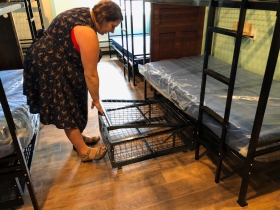
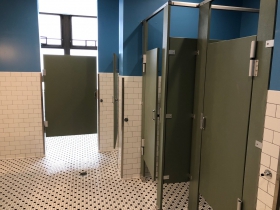
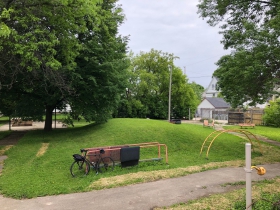
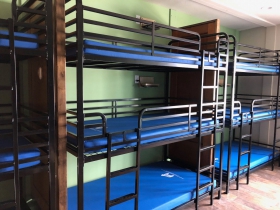
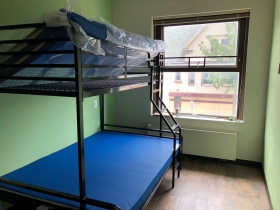
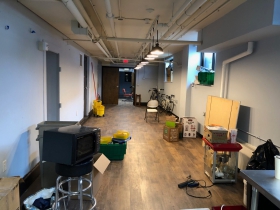
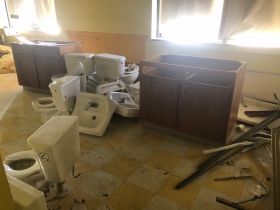
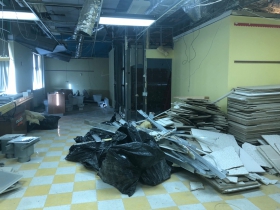
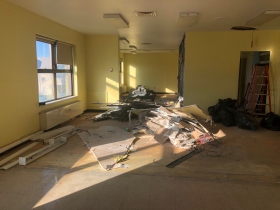
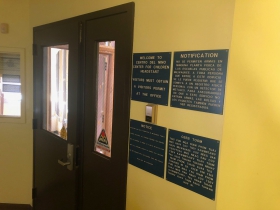
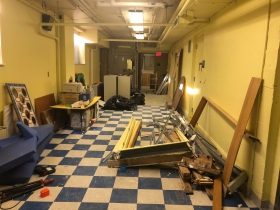
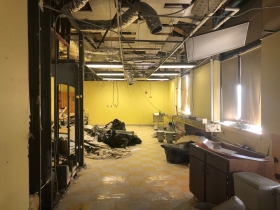



















Let’s go! The vision may take time but it was held in trust that it would blossom! Congratulations!